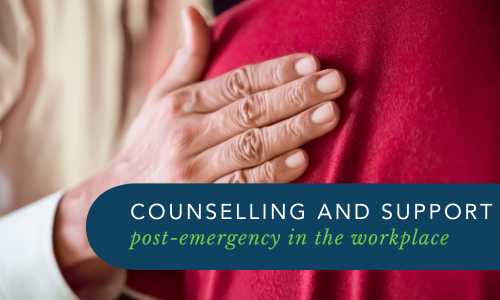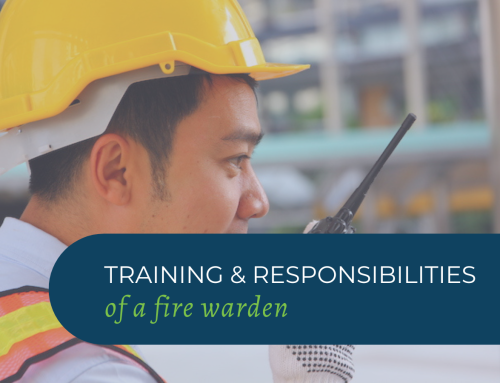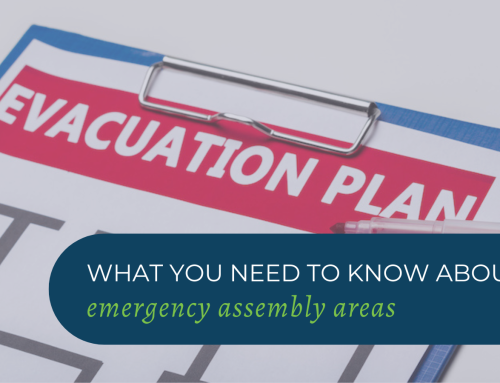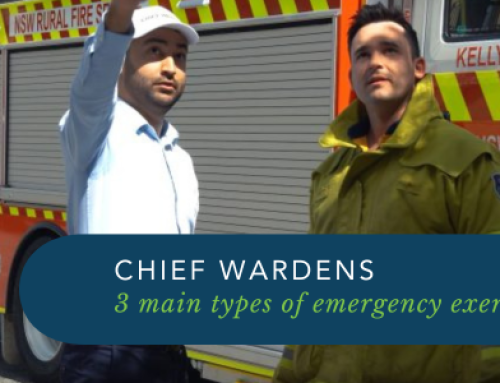Emergencies in the workplace can strike at any time. Fires, medical incidents, violent situations, or even natural disasters. While the immediate priority is always the physical safety of the occupants of the workplace, the post emergency psychological impact of these emergencies is often underestimated. Employees may walk away physically unscathed, but mentally burdened. That’s why post-emergency counselling and support are not just optional add-ons, they are essential components of a healthy, resilient workplace.
The Psychological Toll of Workplace Emergencies
Workplace emergencies can be deeply traumatic. Fear, shock, confusion, and even survivor’s guilt can set in. Some employees may experience post-traumatic stress symptoms, anxiety, or depression. Even those not directly involved may be impacted by witnessing a traumatic event or dealing with the aftermath.
The workplace, often seen as a place of routine and safety, can feel violated. This disruption can affect focus, productivity, job satisfaction, and even lead to issues outside the workplace. That’s why psychological recovery must be part of any emergency management strategy.
The Role of Post-Emergency Debriefs and Counselling
Immediately following an incident, structured post-emergency debriefs, and counselling can help employees process the event. These methods may include:
- Debriefings: A guided group discussion led by a trained team member where participants can share experiences and emotions in a safe space.
- One-on-one Counselling: Private sessions with professional counsellors to support individual processing and coping.
- Peer Support Programs: Training select staff to offer peer-level emotional support after an emergency.
- Wellbeing Check-ins: Informal but intentional conversations initiated by managers or mental health officers to check on staff post-incident.
These practices are most effective when deployed quickly after an emergency and followed up with ongoing support.
The Benefits of Post-Emergency Counselling
Investing in post-emergency support offers clear benefits for both employees and organisations:
- Faster Psychological Recovery: Early intervention helps reduce the risk of long-term mental health issues.
- Improved Team Cohesion: Sharing experiences in a supportive environment can strengthen bonds and foster mutual understanding.
- Stronger Organisational Resilience: Teams bounce back more effectively from disruptions, contributing to long-term stability.
Why Workplaces Must Prioritise This Support
Just as fire drills and first aid are part of a workplace’s emergency preparedness, so too should be post-emergency mental health support. Too often, employers focus on compliance and overlook the emotional needs that arise in emergencies. But failing to address these needs can have long-lasting consequences for morale, productivity, and workplace culture.
Here at Workplace Emergency Management (WEM) we offer comprehensive training for staff and management, not just for emergency response, but for post-emergency recovery as well. Their programs include:
- Guidance and training on running effective debrief
- Education on building a psychologically safe workplace culture
By embedding these practices into your organisation, you don’t just manage emergencies, you empower your team to recover and grow from them.
Emergencies are unpredictable, but your response doesn’t have to be. By prioritising post-emergency counselling and support, workplaces can protect the mental wellbeing of their people and foster a more resilient, compassionate work environment.
If you or anyone you know is struggling with a mental health crisis’ please call 000 or one of the helplines below:
Lifeline provides 24-hour crisis counselling, support groups and suicide prevention services. Call 13 11 14, text 0477 13 11 14 or chat online.
Suicide Call Back Service provides 24/7 support if you or someone you know is feeling suicidal. Call 1300 659 467.
Beyond Blue aims to increase awareness of depression and anxiety and reduce stigma. If you or a loved one need help, you can call 1300 22 4636, 24 hours/7 days a week or chat online.
MindSpot is a free telephone and online service for people with anxiety, stress, low mood or depression. It provides online assessment and treatment for anxiety and depression. MindSpot is not an emergency or instant response service. Call 1800 61 44 34.
Medicare Mental Health gives advice and will connect you to local mental health services. Call 1800 595 212.
MensLine Australia is a professional telephone and online counselling service offering support to Australian men. Call 1300 78 99 78, 24 hours/7 or chat online.
GET IN TOUCH
Are you ready for peace of mind that your workforce is as safe and prepared as possible?
With a dedicated team of staff ready to help you meet compliance requirements and improve the overall safety of your workplace, all you need to do is get in touch.
Request your free audit today!



